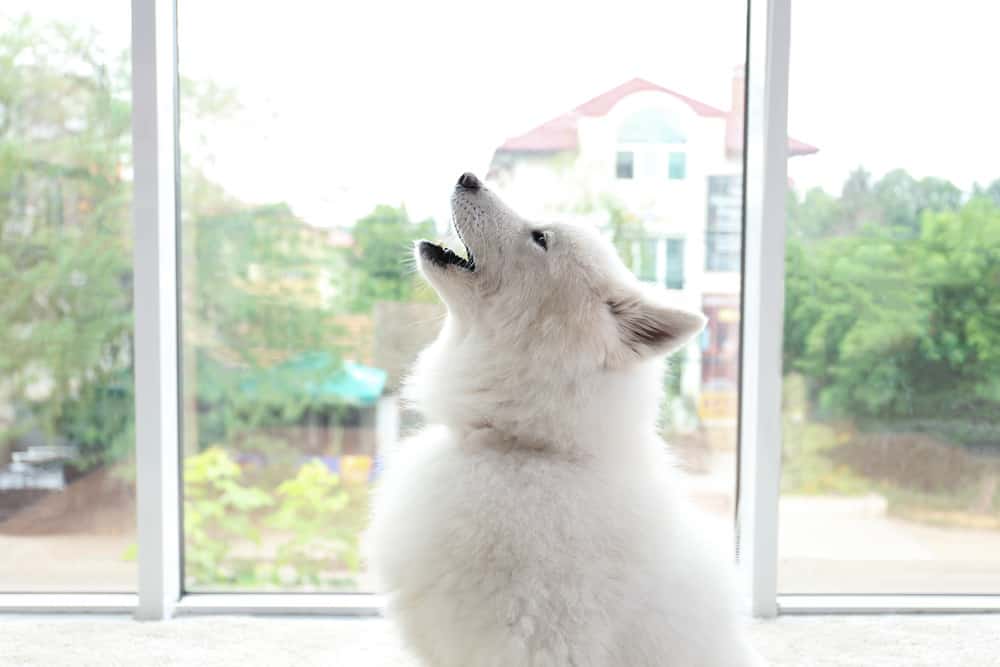I don’t know about your pup, but when I hear sirens, I howl at the top of my lungs.
The truth is, many of us hear the high-pitched sounds of a siren and think it’s another dog howling in the distance, especially us young ones, who haven’t quite worked out the difference yet.
It’s also possible for us to interpret the sound as a threat – kind of like when humans hear sirens and become alert to potential danger. Sometimes, we howl as a way to get your attention and to make you aware of this.
I’m sure you’ve got a hundred and one other questions to ask about this, so I’ve put together an article covering all of the related questions you might be thinking about.
This way, you’ll have a better understanding of what’s going on in your pup’s mind when they throw their head back and howl to high heavens.
Do sirens hurt dogs’ ears?
Our hearing is much more sensitive than yours, but for most of us, sirens don’t hurt our ears. You know this by the way we react – howling isn’t really something we do when we’re in pain.
However, if we are in pain when we hear sirens, we’ll usually hide, tremble, or run away from the sound, rather than staying put and howling. Makes sense right? If we didn’t like the sound, we wouldn’t respond by making more noise!
Not only this, but we’re used to loud noises. Ever noticed that when one of us starts howling we all pipe up? That’s because we see howling as a team sport.
Why do dogs howl when they hear high-pitched noises?

As you know, we’re descended from wolves, and like our ancestors, howling goes way back.
In the wild, our wolf ancestors howled, and this is something the modern canine took with it.
Wild wolves used howling to communicate with their pack; they’d do it to announce their location to other wolves, or even as a way to warn off other wild animals who tried to trespass on their territory.
While your domesticated pooch may be more of a lap dog than a guard dog, modern dogs still howl as a form of communication.
The main difference between dogs and wolves is that we’re a part of a human family, so we’re usually communicating with you – you’re our pack, after all!
As we said earlier, when we howl in response to high-pitch noises, we might interpret it as another dog howling, or perhaps we see it as a threat, which is why we’re trying to warn you of this danger – kind of like a wolf trying to protect its territory from other animals.
Are dogs sad when they howl?
When we howl, we’re trying to communicate with you, so it’s important that you attempt to understand what we’re trying to say.
Some dogs howl a lot, some howl a little, and some hardly howl at all, and howling can mean a range of things. It’s possible that howling can symbolize that we’re sad, but this is not always the case.
Like we said, usually, it’s a sign of alertness and response to high-pitched noises or other dogs howling. Some of us howl to music, and if we stop when you turn the music off, it’s a sign that we’re simply trying to join in with the ‘pack.’
In the wild, we’d also use howling as a way of communicating our location to other pack members. More needy pups will sometimes howl when they’re home alone or when you’re approaching the front door.
This is simply our way of trying to guide you home. Similarly, some of us are protective and will howl to keep intruders out – it’s like a defense mechanism used to ward off potential predators.
This is why we may sometimes be wary of new people entering our home, and may howl at them until we can see that they’re not a threat.
Some dogs howl when they want attention, as this is the easiest way to get it!
The more manipulative pups will do this as a way to “ask” for something, and you can combat this behavior by only rewarding us with hugs or treats when we’re quiet, not when we’re howling!
It is possible sometimes that if we’re howling, we’re anxious. Some of us suffer from separation anxiety and howl when we’re left alone. This will usually stop when you come home.
Other symptoms of this include inappropriate eliminations, constant pacing, destruction of furniture and flooring, or even self-mutilation.
Some of us with separation anxiety respond well to things like chew toys, music, or television, as these distract us, whereas dogs with more serious cases of separation anxiety may require behavior medications or counseling sessions to help us cope.
How do you know when a dog is sad?
Just like humans, dogs can get sad too. Symptoms of dog depression include:
- We become withdrawn or lacking energy and enthusiasm for fun and games – especially if we usually enjoy these.
- We seem lethargic and may sleep more than usual.
- We lose our appetite, or you may notice other changes to our usual eating pattern.
- We may seem restless, for example, not sleeping well or being unable to settle.
- There may be changes to our usual personality or behavior. For example, if we start chewing a lot, attempting escapology, becoming increasingly reactive, forget our toilet training, or even become aggressive.
If you notice any of these symptoms in your pooch, please treat them with kindness, just how you would if a human was struggling with depression.
Consider what has caused the changes in your dog’s behavior, and whether or not they are getting enough exercise and stimulation.
You should visit your vet to rule out clinical causes, and, if the issue persists, it might be a good idea to take us to an experienced behaviorist who can offer further advice and diagnosis.